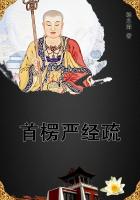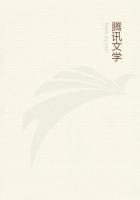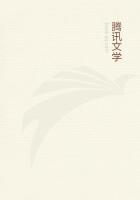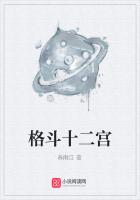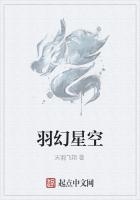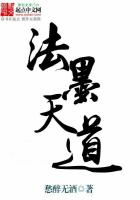However, let us leave what is really a very sordid side of the subject, and return to the question of popular control in the matter of Art, by which I mean Public Opinion dictating to the artist the form which he is to use, the mode in which he is to use it, and the materials with which he is to work. I have pointed out that the arts which have escaped best in England are the arts in which the public have not been interested. They are, however, interested in the drama, and as a certain advance has been made in the drama within the last ten or fifteen years, it is important to point out that this advance is entirely due to a few individual artists refusing to accept the popular want of taste as their standard, and refusing to regard Art as a mere matter of demand and supply. With his marvellous and vivid personality, with a style that has really a true colour-element in it, with his extraordinary power, not over mere mimicry but over imaginative and intellectual creation, Mr Irving, had his sole object been to give the public what they wanted, could have produced the commonest plays in the commonest manner, and made as much success and money as a man could possibly desire. But his object was not that. His object was to realise his own perfection as an artist, under certain conditions, and in certain forms of Art. At first he appealed to the few: now he has educated the many. He has created in the public both taste and temperament. The public appreciate his artistic success immensely. I often wonder, however, whether the public understand that that success is entirely due to the fact that he did not accept their standard, but realised his own. With their standard the Lyceum would have been a sort of second-rate booth, as some of the popular theatres in London are at present. Whether they understand it or not the fact however remains, that taste and temperament have, to a certain extent been created in the public, and that the public is capable of developing these qualities. The problem then is, why do not the public become more civilised? They have the capacity. What stops them?
The thing that stops them, it must be said again, is their desire to exercise authority over the artist and over works of art. To certain theatres, such as the Lyceum and the Haymarket, the public seem to come in a proper mood. In both of these theatres there have been individual artists, who have succeeded in creating in their audiences - and every theatre in London has its own audience - the temperament to which Art appeals. And what is that temperament? It is the temperament of receptivity. That is all.
If a man approaches a work of art with any desire to exercise authority over it and the artist, he approaches it in such a spirit that he cannot receive any artistic impression from it at all. The work of art is to dominate the spectator: the spectator is not to dominate the work of art. The spectator is to be receptive. He is to be the violin on which the master is to play. And the more completely he can suppress his own silly views, his own foolish prejudices, his own absurd ideas of what Art should be, or should not be, the more likely he is to understand and appreciate the work of art in question. This is, of course, quite obvious in the case of the vulgar theatre-going public of English men and women. But it is equally true of what are called educated people. For an educated person's ideas of Art are drawn naturally from what Art has been, whereas the new work of art is beautiful by being what Art has never been; and to measure it by the standard of the past is to measure it by a standard on the rejection of which its real perfection depends. A temperament capable of receiving, through an imaginative medium, and under imaginative conditions, new and beautiful impressions, is the only temperament that can appreciate a work of art. And true as this is in the case of the appreciation of sculpture and painting, it is still more true of the appreciation of such arts as the drama. For a picture and a statue are not at war with Time. They take no count of its succession.
In one moment their unity may be apprehended. In the case of literature it is different. Time must be traversed before the unity of effect is realised. And so, in the drama, there may occur in the first act of the play something whose real artistic value may not be evident to the spectator till the third or fourth act is reached. Is the silly fellow to get angry and call out, and disturb the play, and annoy the artists? No. The honest man is to sit quietly, and know the delightful emotions of wonder, curiosity, and suspense. He is not to go to the play to lose a vulgar temper.
He is to go to the play to realise an artistic temperament. He is to go to the play to gain an artistic temperament. He is not the arbiter of the work of art. He is one who is admitted to contemplate the work of art, and, if the work be fine, to forget in its contemplation and the egotism that mars him - the egotism of his ignorance, or the egotism of his information. This point about the drama is hardly, I think, sufficiently recognised. I can quite understand that were 'Macbeth' produced for the first time before a modern London audience, many of the people present would strongly and vigorously object to the introduction of the witches in the first act, with their grotesque phrases and their ridiculous words.
But when the play is over one realises that the laughter of the witches in 'Macbeth' is as terrible as the laughter of madness in 'Lear,' more terrible than the laughter of Iago in the tragedy of the Moor. No spectator of art needs a more perfect mood of receptivity than the spectator of a play. The moment he seeks to exercise authority he becomes the avowed enemy of Art and of himself. Art does not mind. It is he who suffers.
With the novel it is the same thing. Popular authority and the recognition of popular authority are fatal. Thackeray's 'Esmond'
is a beautiful work of art because he wrote it to please himself.
In his other novels, in 'Pendennis,' in 'Philip,' in 'Vanity Fair'

